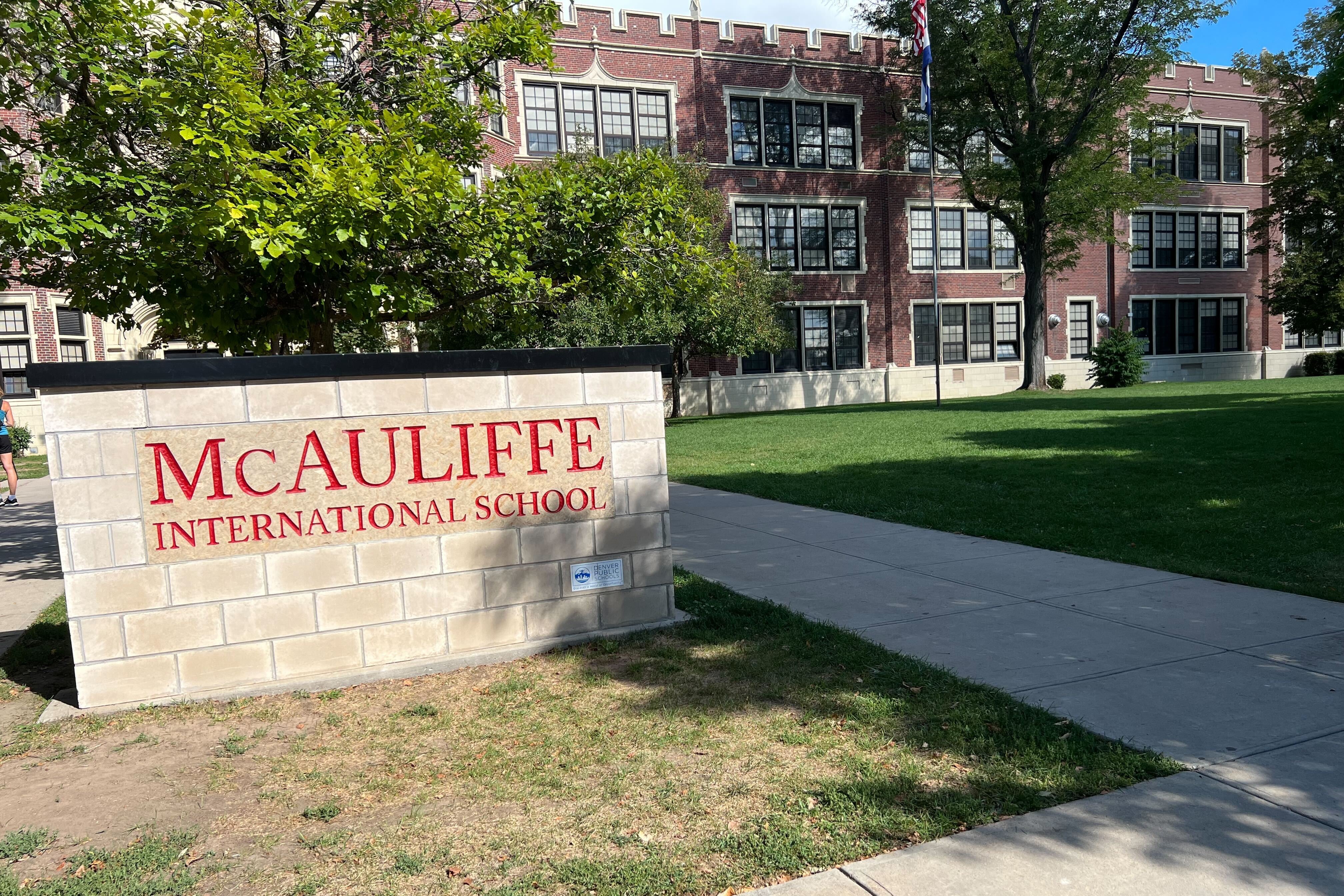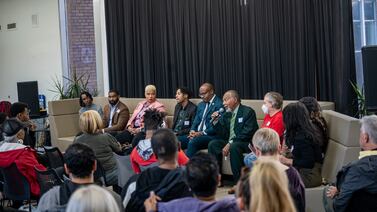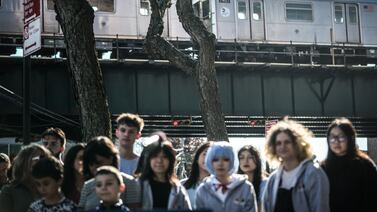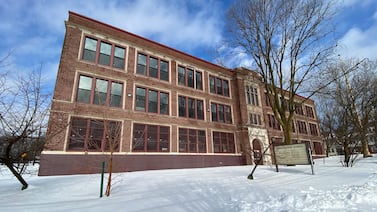Sign up for Chalkbeat Colorado’s free daily newsletter to get the latest reporting from us, plus curated news from other Colorado outlets, delivered to your inbox.
The Northeast Denver Innovation Zone, an independent nonprofit organization that oversees three semi-autonomous Denver public schools, will dissolve as of June 30, according to a letter signed by the zone’s board of directors.
The dissolution will revert two of three schools in the zone — McAuliffe International School and McAuliffe Manual Middle School, which is in the process of changing its name — to the control of Denver Public Schools. The third school in the zone, Swigert International School, will seek to join the last remaining Denver innovation zone, the Luminary Learning Network.
The dissolution of the zone known as NDIZ also has symbolic significance as another pulled thread in the unraveling of a decade and a half of school reform policies in Denver.
Innovation zones are a reform-era invention that grant traditional public schools some of the same flexibility and freedom enjoyed by charter schools. The idea is that freeing schools from district bureaucracy allows them to experiment in ways they believe will help student learning, and several NDIZ schools have indeed posted high test scores.
But in a letter to families and staff, the zone’s board of directors said DPS’ “shifting philosophy on innovation zones” has created “an uncertain environment to operate NDIZ.”
Control of the Denver school board has changed in recent years from members who favored reform policies to reform skeptics who have questioned innovation zones.
A year ago, the board voted to dissolve another innovation zone called Beacon Network Schools at the recommendation of Superintendent Alex Marrero, who was concerned about Beacon’s organizational health and low student test scores.
DPS has also had concerns about — and conflicts with — NDIZ.
The former principal of McAuliffe International, Kurt Dennis, was fired by DPS in July in the aftermath of a televised interview he did with 9News expressing concerns about gun violence and school safety. In August, the district opened an investigation into the improper use of seclusion rooms at McAuliffe International. A summary of the findings revealed school staff were at fault, though Dennis’ attorney disputed the findings and NDIZ called for an independent investigation.
In connection with the seclusion investigation, DPS banned the executive director of NDIZ, Colleen O’Brien, from all district facilities and information systems in November. DPS and NDIZ also struggled to agree on a new version of the zone’s “innovation plan” after teachers at what was the largest school in the zone, Northfield High, voted last year to leave NDIZ.
The letter from the zone board says the board “engaged in mediation with DPS in January 2024 and were unable to resolve ongoing challenges,” according to a copy provided to Chalkbeat.
“After careful consideration and extensive dialogue with school leaders, we have concluded that sunsetting operations is the most prudent course of action currently,” the letter says.
The zone’s board of directors declined an interview with Chalkbeat.
The Denver school board does not have to vote on the dissolution of NDIZ, said DPS spokesperson Scott Pribble. However, the board will have to vote on whether Swigert International School, an elementary school in the Central Park neighborhood, can join the Luminary Learning Network, Denver’s first innovation zone and the last zone remaining.
Created in 2016 with four schools and since expanded to six, the Luminary Learning Network appears to be going strong. The Denver school board voted unanimously last month to add a seventh school, Merrill Middle School, to the zone next school year.
Melanie Asmar is the bureau chief for Chalkbeat Colorado. Contact Melanie at masmar@chalkbeat.org.





